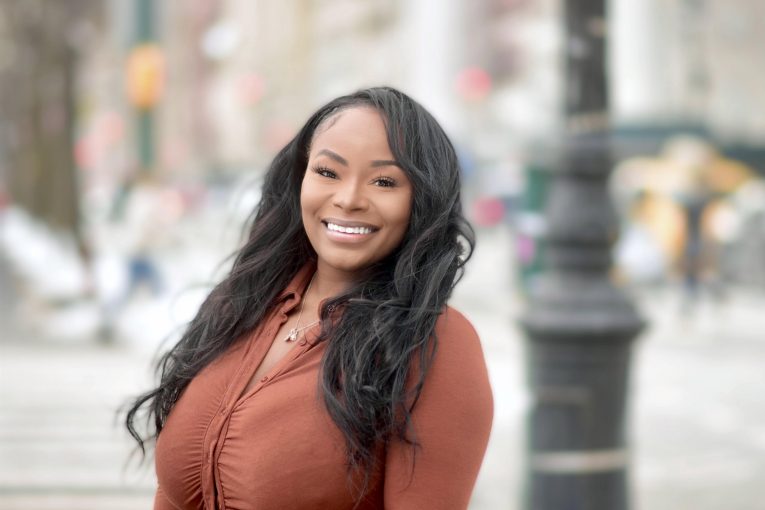

By Jariah Moore
MEMPHIS, TN – The fundamental racism and violence of the police as an institution is not erased based on the race of individual police officers, argues Olayemi Olurin, a movement lawyer and political commentator in a Teen Vogue article this week.
In the wake of the killing of Tyre Nichols, the U.S. has grappled with a number of thoughts, opinions, and views on the matter, said Olurin, writing some have described the incident as “Black on Black” crime rather than as a killing conducted by the police.
Others have taken the incident as “proof…racism has nothing to do with it,” all while still denying any overarching issues with policing,” Olurin adds, noting still others on the far-right have speculated that the killing was a stunt pulled by Antifa in an effort to disrepute the police.
Olurin comments, “I’ve even read a few far-right conspiracy theorists on Twitter who said they don’t believe the Memphis officers were cops at all, but Antifa agents hired to make police look bad — as though we haven’t seen police brutalize and kill people on camera many times before.”
These differing opinions share some common ground, added Olurin, who notes these types of statements look to shift the blame away from the police and instead place it solely on “bad actors” within the system.
In Olurin’s view, despite the “feigned confusion” surrounding the killing of a Black man by Black police officers, the solution to this paradox becomes far clearer when taking into account the nature of the police as an institution.
According to Olurin, contrary to the portrayal of the incident by the media, the death of Tyre Nichols does not fundamentally differ from the killings of Black men in the past.
Despite the previous, similar actions of the police taken during the killings of Elijah McClain, George Floyd, and Danroy Henry, “we’re supposed to believe that this video is different, these police officers are different, their actions were especially egregious, somehow especially brutal,” Olurin writes.
The fact that the police officers themselves were Black men is not the primary issue at play in the incident, said Olurin, charging this is due to the fact the killing occurred within a policing system that “is as systemically racist as it is innately violent.”
The author quotes Anthony Conwright’s words, “Americans are all anti-Black, because anti-Blackness is the governing force of the country’s interests.”
According to Olurin, although diversification has been touted as a solution to the racism of the police, the experience of Black people over the years has proven otherwise. She goes on to write that, in many cases, Black police officers have looked to separate and raise themselves above their Black peers by participating in the very system that abuses them.
Olurin writes, “First: There doesn’t need to be a white person in the room for white supremacy to function. Second: Although white supremacy wholeheartedly welcomes Black cops (and any other Black person who wants in) to be its agents, it will never protect you as it protects its own.
“Third: Diversifying police departments doesn’t address the fact that policing is as systemically racist as it is innately violent. All too often, hiring more Black and brown officers just provides us with the privilege of being brutalized by people who look like us.”
The writer quotes what James Baldwin wrote on the matter, “[Black police officer’s] entire reason for breathing seemed to be his hope to offer proof that, though he was Black, he was not Black like you.”
Olurin writes Black police officers look to advantage themselves within American society by operating within the police institution. In fact, the institution itself seems initially to embrace Black officers who are willing to work on its behalf,” the author says.
“But people are too willing to act as if Nichols’s death is something new. Why? Because there are a few things America does well in the wake of routine tragedy, and that’s feign ignorance, scapegoat, and deflect by condemning a part to preserve the whole,” the Teen Vogue opinion notes.
While the actions, Olurin reasons, taken by the police officers involved in the beating are, without a doubt, reprehensible, the larger issue at hand is far greater than these individuals.
“I’m not defending the Memphis officers; I don’t sympathize with them. I, like their police department and the media, wish to make an example of them, but for different reasons. I want to offer them as proof of this very simple truth: You can choose to align yourself with your oppressors and help them oppress your community; they won’t stop you, they’ll even welcome you, but they will not protect you.
“As a Black person, you can choose to work against your own community to your perceived advantage, but you must always remember that the white supremacists you may think are tokenizing and validating you are really just using you to legitimize their power over you. For that reason alone, you are allowed to act.
“In their eyes, you are no less inferior, and you are no more deserving. You are a tool, and should you cease to be useful, you will be discarded — just as these officers have been,” said Olurin.